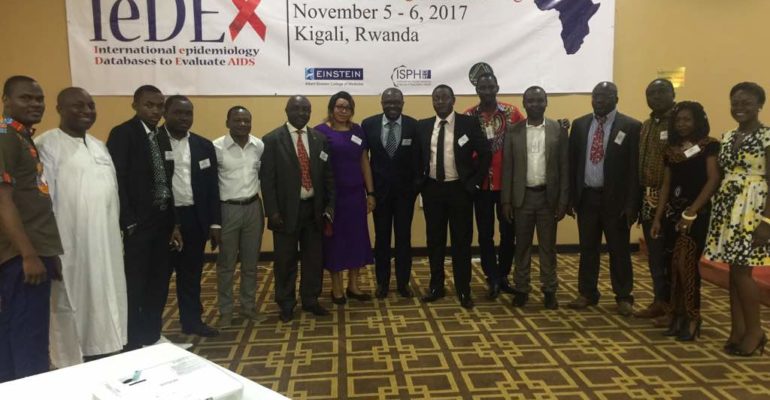The overall goal of the IeDEA study is to use secondary clinical, laboratory and epidemiologic data from HIV-infected patients in various regions to answer HIV/AIDS and other related co-morbidities research questions that cannot be answered with existing individual cohorts in each country. The IeDEA research consortium makes it possible to generalize study findings to wider settings and populations, with the goal of improving HIV care across countries in the world.
The International Epidemiologic Database to Evaluate AIDS (IeDEA) research study is funded by the United States National Institutes of Health (NIH) and the National Institute of Allergy and Infectious Diseases. The IeDEA Central Africa study is part of the IeDEA global research consortium, involving seven participating regions: West, East, Central and Southern Africa; South and North America; and Asia and Pacific. The Central Africa IeDEA is funded through Albert Einstein College of Medicine, USA. The Cameroon IeDEA study is implemented by the Clinical Research Education and Consultancy (CRENC) foundation, in collaboration with the National AIDS Control Committee (NACC) and the Ministry of Public Health through the respective health facilities involved in the study.
The IeDEA study is currently being implemented in the Limbe Regional Hospital (LRH), Bamenda Regional Hospital (BRH) and Yaounde Jamot Hospital (YJH). IeDEA employs both primary and secondary data collection method to capture epidemiologic, laboratory and clinical data of patients on ART. Because the IeDEA goals include the ability to assess predictors and clinical outcomes of relatively rare diagnosis (e.g. specific cancers), the project attempts to enroll all consenting PLWHIV in the participating clinics. Thus, the overall target of the IeDEA project is to enroll all the over 12,000 people living with HIV in these three health facilities by December 2018 and follow them up to June 2021, with a possibility to extend for another 5 years funding. The number of patients enrolled in IeDEA is expected to increase far beyond 12,000 as increasing number of new patients are enrolled into care in this era of “treat all”. IeDEA also pays great attention to implementation sciences and contextual differences that may affect HIV treatment outcome. For this reason, IeDEA has in its long term plan to enrolled more HIV clinics in diverse geographical settings, including rural and urban clinics.
IeDEA also has as one of its priorities to build scientific capacity in Cameroon and enhance scientific productivity using the IeDEA data. In this view, IeDEA has been providing and will continue to provide both national and international scientific writing and leadership opportunities to its members. It was from this perspective that the CRENC-IeDEA study in Cameroon, in collaboration with the IeDEA US team, organised a leadership and scientific productivity training in September 2017 in the Yaounde Jamot Hospital. All the IeDEA investigators (both senior and junior) attended a meeting in Kigali, Rwanda in November, 2017 to discuss and plan the scientific agenda for All Africa and Central Africa IeDEA. During the meeting, IeDEA provided opportunities for young researchers, including those from Cameroon to contribute to the development of the all Africa IeDEA scientific agenda and research priorities.



I am interested in your programme and desire to enquire on how I could get involved.